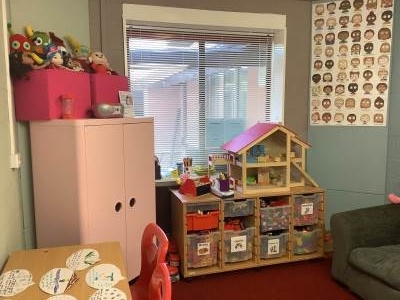Emotional Literacy Support Assistants (ELSA)
ELSA
What is ELSA?
ELSAs are Emotional Literacy Support Assistants. They are teaching assistants who have received specific additional training from educational psychologists from whom they receive on going supervision following training. Their role is to support children and young people in school to understand and regulate their own emotions whilst also respecting the feelings of those around them.
Support
ELSAs are trained to plan and deliver programmes of support to pupils in their school who are experiencing temporary or longer term additional emotional needs. The majority of ELSA work is expected to be delivered on an individual basis, but sometimes small group work will be appropriate, especially in the areas of social and friendship skills.
Pupil Priorities
The priorities for an individual pupil will be identified in discussion with other staff in the school. These priorities will inform the setting of aims for the programme, which are in line with individual education plan targets.
Where possible it is also helpful to have pupil input on target setting. Working on what is important to them is likely to increase the impact of the support.
With the programme aims in mind, the ELSA would plan support sessions to facilitate the pupil in developing new skills and coping strategies that allow them to manage social and emotional demands more effectively. Each session has its own objective (either something the ELSA wants to achieve or something for the pupil to achieve) that builds towards the longer term aims.
ELSA is a time limited intervention
Rather than using an ELSA as part of a pupil’s permanent support structure, it is intended for ELSA intervention to be time-limited to assist the development of specific skills, usually up to a term, but this can vary.
Change as a result of ELSA intervention
It needs to be appreciated that change cannot necessarily be achieved rapidly and is dependent upon the context and complexity of the presenting issues. For pupils with complex or long-term needs it is unrealistic to expect ELSA intervention to resolve all their difficulties. It needs to target specific aspects of a pupil’s needs.
The training and development of ELSAs is an ongoing process and wisdom is required to recognise when issues are beyond the level of expertise that could reasonably be expected of an ELSA. All ELSA programmes should have clear programme aims that are realistic to achieve within the time frame envisaged, are specific and behaviourally observable.
Useful Links
Sleep deprivation causes increased hyperactivity and other behavioural problems, as well as damaging physical and mental development. Poor sleep habits from an early age can lead to long term sleep problems. Please follow the link to find out more on The Sleep Charity Website


















